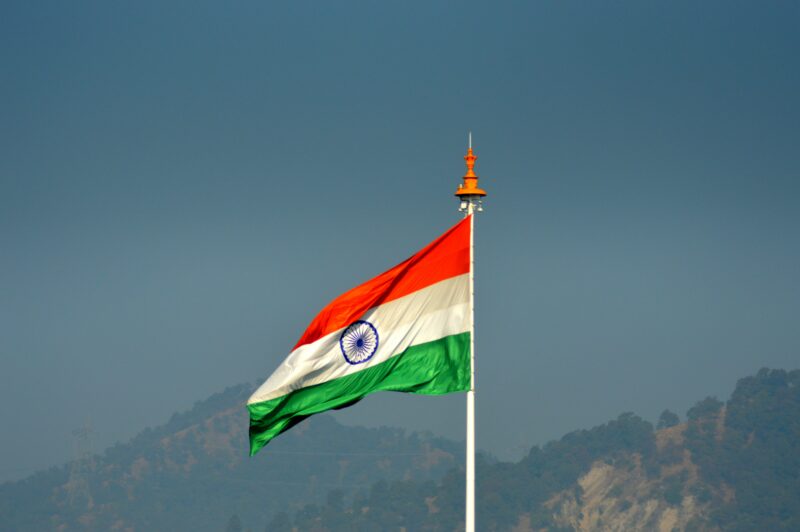Outrage erupted in the northeast of India after security forces killed more than a dozen Nagaland locals who they mistook for insurgents, spiking protests in a region already aggrieved with the Indian military. According to Reuters, a senior police official reported that security forces misinterpreted intelligence about militants in the area and fired on a truck filled with local Konyak tribal miners, killing six. Eight more were killed later that night after hundreds of locals arrived to protest against the security forces. Home Minister Amit Shah spoke before the Indian parliament and said that the government “expresses remorse,” and that the army has also conveyed “deep regret” over the killings.
But their regret has satisfied few. Local police, separate from the Indian military, registered a complaint claiming the special forces refused a local police guide and that “the intention of the security forces is to murder and injure civilians.” Many have called for the repeal of the Armed Forces Special Powers Act (AFSPA), which empowers security forces to act with impunity in regions it deems “disturbed.” Nagaland’s Chief Minister, Neiphiu Rio, before hundreds of mourners gathered at the victims’ memorial, called the laws “draconian” and said that “today, the whole world is criticizing AFSPA and now the Nagaland government wants AFSPA to be withdrawn.” Human Rights Watch said in a statement the law “violates international human rights law protections,” and it’s South Asian Director Meenakshi Ganguly continued that “so long as the Armed Forces Special Powers Act protects soldiers from accountability, such atrocities will continue.”
The similarities between military overreach and deadly consequences between those killed this week and those killed over the last 60 years in Nagaland, Kashmir, Manipur, and other areas under the purview of the AFSPA speak for themselves. The killings this week were a travesty, but its familiarity plainly belies an unacceptable pattern of death, abuse, and human rights violations that stem from this law. If the Indian government truly feels any regret stronger than the inconvenience of being caught, they should be moved to repeal the AFSPA and prosecute those involved immediately.
The AFSPA is undoubtedly one of the main blemishes on India’s already imperfect human rights record. Originally enacted in 1958 to give the army temporary powers to deal with insurgencies in northeastern states like Assam and Meghalaya, it eventually expanded to seven nearby states, including Manipur and Nagaland, as well as Jammu and Kashmir. According to Human Rights Watch, the law enables soldiers to “shoot to kill, make arrests on flimsy pretexts, conduct warrantless searches, and demolish structures” under the pretext of fighting insurgencies. In practice, Human Rights Watch claims “soldiers have raped, tortured, forcibly disappeared, and killed people without fear of being held accountable,” because complaints require the express permission of the central government. Even after India’s Supreme Court declared more stringent accountability was required by the law, the central government has continued to deny permission to prosecute accused members of the armed forces.
In 2019, the UN released a report on the conflict in Jammu and Kashmir, citing the AFSPA as “a key obstacle to accountability” for acts of the Indian military, as in 30 years “there has not been a single prosecution of armed forces personnel granted by the central government,” including cases where prosecutions were overturned by higher courts. The killings in Nagaland this week show this law is still a tool the Indian government is all too willing to use to prevent accountability.
As India’s star on the world stage continues to rise and its international ties deepen, the international community should take note of the human rights record India has left behind and continues to add to. The harsh actions of the Indian military against its own citizens and the obstructive responses of the Indian government display a clear, systemic disregard for the rights and safety of their people. The calls for reform, accountability, and peace being made vociferously by local Indian groups from Nagaland to Kashmir should be echoed by the international community. If the internal pressure to repeal the AFSPA and hold the accused accountable is matched externally, the Indian government may be forced to listen to its people and finally end the suffering this law has allowed.
- A Tropical Cold War: Opportunity And Danger As U.S. And China Compete For The Pacific - March 29, 2023
- Burkina Faso Junta Isolated Internationally As Violence Worsens - January 6, 2023
- Suffering, Famine, And Internet Blackouts Remain In Tigray Despite Ceasefire - December 3, 2022


